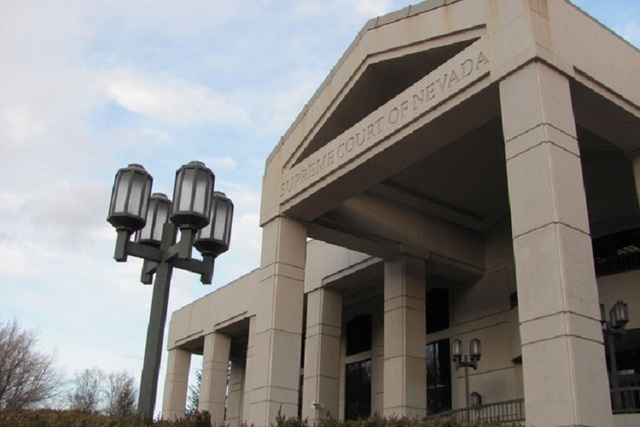Nevada ruling: Police have power to intercept cell calls
CARSON CITY — The Nevada Supreme Court said Thursday that the state’s wiretap law permits the interception of cellphone calls and text messages even though it has not been updated since 1973.
The ruling, written by Justice Mark Gibbons, was the result of an appeal by Phillip Sharpe of his trafficking in a controlled substance conviction out of Lyon County.
In 2010, police began investigating Sharpe after receiving information he sold methamphetamine. Officers obtained a warrant authorizing a wiretap to intercept communications on two different cellphone numbers attributed to Sharpe.
Due in part to the wiretap information, police arrested Sharpe and confiscated 3.25 pounds of meth from his vehicle.
Sharpe sought to suppress the wiretap evidence but a judge denied the motion. He then pleaded guilty and was sentenced to life in prison with parole eligibility after 10 years.
On appeal Sharpe argued that the wiretap information should be suppressed because Nevada law does not allow the interception of cellular communications.
But a three-justice panel of the court said Nevada’s law regarding “wire communications” includes cellphones. The court said that “wireless” cellphone communications do involve the use of a wire when the communication reaches a cellular tower and is then transmitted by wire through a switching station to another transmitting tower.
“We agree with the conclusion of our sister courts: cellular telephone calls and text messages rely in part upon the aid of wire for the purposes of transmission,” Gibbons wrote.
As a result, the court upheld Sharpe’s conviction.
Contact Sean Whaley at swhaley@reviewjournal.com or 775-687-3900. Find him on Twitter: @seanw801

















